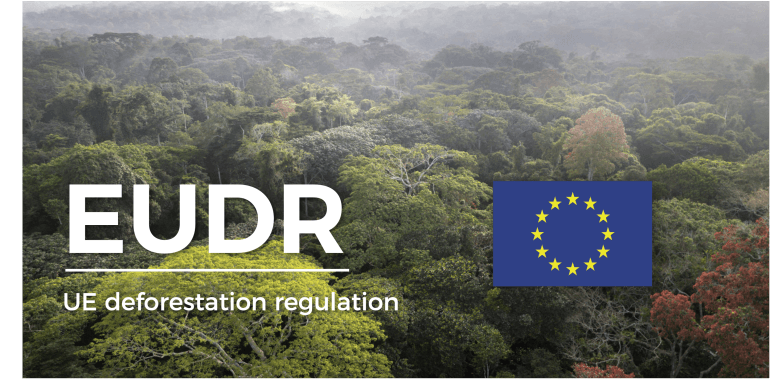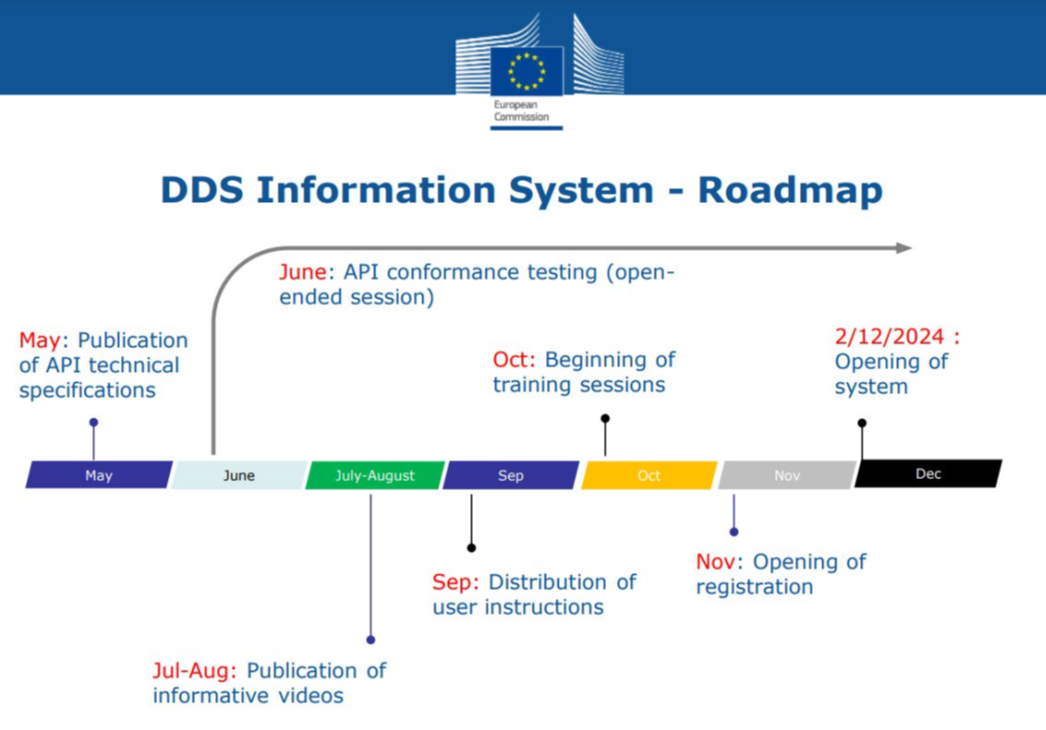

05.07.2024
Despite requests from French and European trade organisations and government departments, the European Commission could maintain the date of application of the Regulation on deforestation and forest degradation (EUDR) for large companies at 30 December 2024, and for small and medium-sized companies at 30 June 2025.

Requests for postponements, modifications or grace periods are multiplying, both from the industries concerned and from certain European administrations. We presented a summary of the industry's reactions a few weeks ago, and they have intensified since then. Recently, the European People’s Party (EPP) leader for the environment in the European Parliament called for a delay in the implementation of the EUDR; previously, it was the US administration that called on the EU to postpone the implementation of the regulation.
With less than six months to go before the regulation comes into force, let's take stock of its implementation:
Interpretation documents
At this stage, a number of key elements remain unresolved. For the time being, specific guidelines for each sector are still lacking (although a draft document is circulating for the timber sector), as is an updated version of the FAQ (the latest version dates from December 2023 and is available on the Commission's EUDR page). The long-awaited update of the FAQ will further clarify the obligations of companies. This version will contain around 40 new questions and answers, covering various aspects such as traceability, due diligence obligations, and critical definitions such as forest degradation. This third update is scheduled for this summer.
Information system
We told you about it a few weeks ago: this information system, which will enable operators to submit their declaration of due diligence, is currently being developed.
Currently in the API test phase, we have received feedback from test companies indicating that the use of these interfaces is not very operational and requires considerable IT resources.
The technical specifications will be published during the summer and scheduled training sessions will be offered at the start of the 2024 academic year. The system will be open for registration in November 2024 and operational from 2 December 2024.

The timetable for implementing the information system poses a major challenge for operators. The system will be operational less than a month before the regulation comes into force. This short period leaves operators with insufficient time to complete a number of essential tasks: creating accounts, familiarising themselves with the system, entering the first declarations, and so on.
You can find all the information about the information system on this page, and a description of the system in this presentation.
Geolocation data made confidential
At the last meeting of the EC's multi-stakeholders platform on 20 June, clarifications were provided on the collection and transfer of geolocation data: this data, when entered for the first time by the first operator (European forest operator or importer), may be confidential. Downstream operators will simply be able to retrieve the reference of previous declarations of due diligence without having to collect or have access to this geolocation data. This is a victory for the industry, which had been criticising the disclosure of sources of supply.
GPS coordinates must be supplied in a file using the standard GeoJSON format.
Country risk assessment by the EC
An assessment system is being set up to classify countries according to their risk of deforestation. A consultancy firm (Guidehouse Netherlands B.V.) was contracted last April, and is currently working with the EC to define the evaluation methodology. At this stage, there is still no dialogue with third countries, and the results of this evaluation are expected after the directive comes into force. It is understandable that the diplomatic aspects can be quite sensitive in this area. All countries will therefore be classified as standard risk in January 2025, requiring companies to carry out a full risk analysis for all supply countries.
And in the meantime?
Faced with these challenges, European operators are advised to adopt a pragmatic approach and carefully weigh up the risks involved. Comprehensive due diligence, combined with sustainable management certification, is essential to drastically reduce the risks of non-compliance, ensuring that products placed on the EU market do not contribute to deforestation or forest degradation and have been legally exploited. To prepare for the implementation of the regulation, we recommend that you notify your suppliers. In this article, you will find ETTF's sample letters in several languages, so don't hesitate to use them.
In order to comply with the new requirements of the regulation on deforestation and forest degradation, the ATIBT is preparing a brochure explaining how certified sustainable management companies in the Congo Basin meet the requirements of the EUDR and proposing tools for conducting due diligence on certified supplies supplying from this region.
Federations such as LCB are defining due diligence tools. LCB is currently leading working groups by supply zone to better understand the relevant legislation in the countries of production, thereby ensuring compliance with regulations and sustainable management of forest resources.
If you have any questions on this subject, please do not hesitate to contact Caroline DUHESME at ATIBT or Alessandra NEGRI at LCB.
Download the ETTF letters: